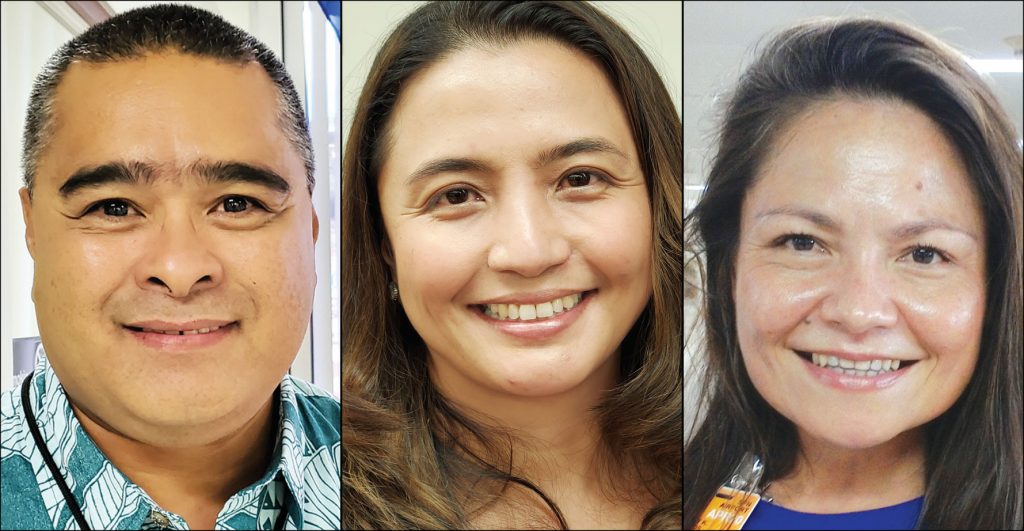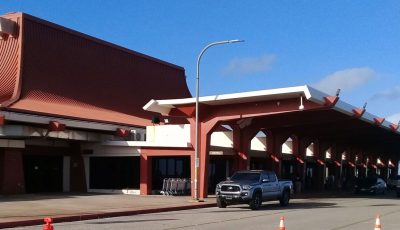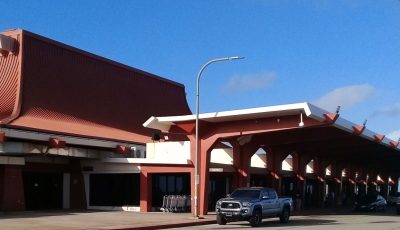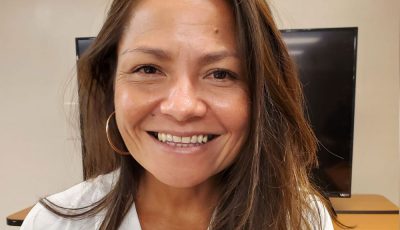Finance, CPA negotiate $2.2M OPA fee arrears
Finance opposes bill that exempts some autonomous agencies from 1% OPA fee
Finance Secretary David DLG Atalig has opposed a bill that would exempt public corporations and autonomous agencies from paying the 1% Office of the Public Auditor fee, even as he disclosed that Finance is negotiating with the Commonwealth Ports Authority to settle CPA’s estimated $2.2 million arrears in OPA fee.
At the same meeting before the House of Representatives Ways and Means Committee yesterday regarding House Hill 22-102, CPA board chair Kimberlyn King-Hinds said their issue is primarily with the airport because there are different rules that apply to the seaport.
King-Hinds said they don’t have an issue paying the 1% OPA fee for seaport because it’s a different set of rules that apply. “There is no issue with revenue diversion down at the seaport,” she said.
The issue at this point, she said, is not necessarily the money, but the law itself. “It is not our position. It is the [Federal Aviation Administration’s] position,” King-Hinds said.
King-Hinds also disclosed that Senate President Jude U. Hofschneider (R-Tinian) and House Speaker Edmund S. Villagomez (Ind-Saipan) arranged a meeting for today, Tuesday, with CPA and FAA representatives to discuss FAA’s issue with OPA’s 1% fee with respect to CPA’s airports.
At the same Ways and Means meeting yesterday, Public Auditor Kina B. Peter Peter reiterated her previous House communication that the proposed legislation—which would now require OPA to identify a revenue stream and determine the appropriate calculation—is going to potentially impair OPA’s independence.
“Why wouldn’t we go out and audit or investigate an entity that can pay the most? So how do you draw the line in terms of independence when you’re also trying to figure out a way to fine your own entity?” Peter asked.
Atalig said the Commonwealth has a responsibility to strictly adhere to the laws, statutes, and regulations intended to protect government resources from misuse.
Atalig said the Commonwealth government operates with a significant volume of federal and local assets and other resources requiring strict internal controls.
He said OPA is a critical component in ensuring these resources are protected and individuals adhere to these controls meant to protect public resources.
Consequently, he said, they must ensure OPA is able to receive the resources necessary for their continued operations.
He said excluding public corporation and autonomous agencies from paying the 1% fee sets a potential harmful precedent for the other organizations currently under some financial constraints.
Atalig said the compounding effects of additional exemptions to this funding model for OPA would diminish the resources for an already underfunded office.
He said OPA will need support so they may continue the operations they’re mandated by law.
To allow the OPA to charge fees for their services will take away their ability to be independent in their audits and reviews of agencies, including public corporations and autonomous agencies, he added.
In response to Rep. Christina Sablan’s (D-Saipan) question, Atalig said they did discuss CPA’s arrears and they’re negotiating to settle that.
“We are also in communication in terms of their ability to clear that from their financials. My goal as secretary of Finance is to utilize these receivables that is due to the CNMI government to assist and work out what challenges both due to the agencies and due to the central general fund to clean up our books,” he said.
Atalig said he has also been in communication with the Commonwealth Healthcare Corp. and Commonwealth Utilities Corp. regarding their arrears.
“I’m working an offset agreement. Every agency has different needs,” he said.
Specific to CPA, Atalig said he is sure they will settle fairly quickly as they already have an agreement and they’re just waiting for CPA’s legal counsel to draft a memorandum of understanding and for his office to review it.
Atalig said he is hoping CPA should be able to clear their books before their next auditing deadline.
King-Hinds said CPA is an agnostic on House Bill 22-102 and that this issue with revenue diversion is an issue that the FAA has been raising with CPA.
“It’s not a new issue. We’ve been asking previous legislatures to get CPA exempted from the 1% because the FAA has taken the position that the 1% across the board is what they consider revenue diversion,” she said.
King-Hinds said they have relayed to FAA some of the concerns that have been raised by OPA and House members as well as Atalig, and it’s a position that they’ve maintained.
“We are obviously going to advocate for what they’re asking for us to do. They are our federal grantors. I understand that folks have different opinions as to what constitute revenue diversion. I’m not here to argue with the federal grantor. I’m here to basically to do what they’re asking of us,” she said.
King-Hinds said what FAA is stating is that this 1% fee violates CPA’s grant assurance requirements and that CPA is in jeopardy of losing millions of dollars of federal funds, including funds right now that’s on the books—for the airport loading bridge and the tower.
She said CPA is in the process of putting out a package to resurface the runway, and that’s almost a $30-million project in itself.
“These things are on the line and this is what they are telling us. They are the folks that basically pay for the airport,” she said.
Sablan said she believes that would be something to further clarify with FAA if they’re really “holding this over our heads and threatening grants if we don’t change our law.”




























